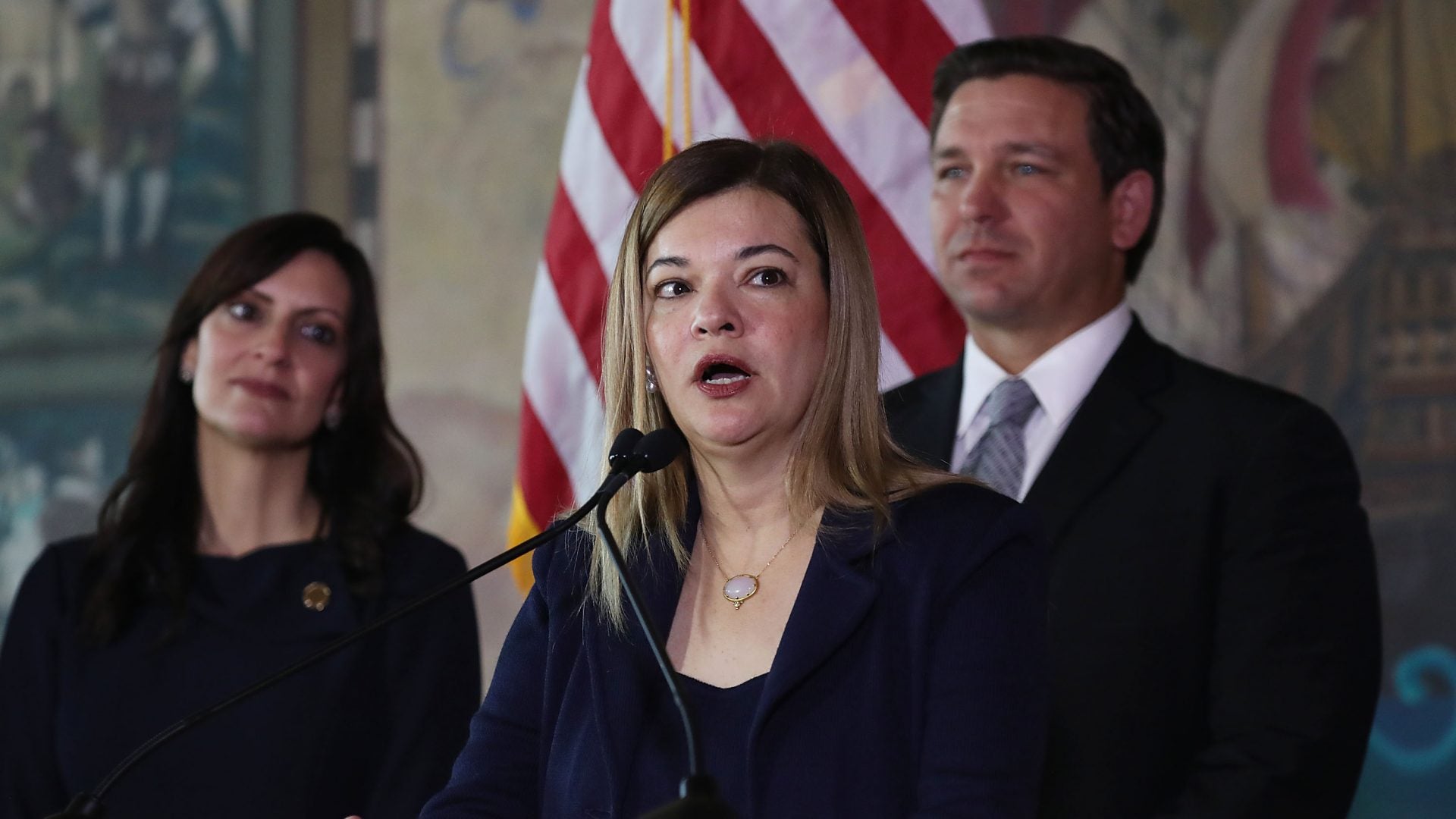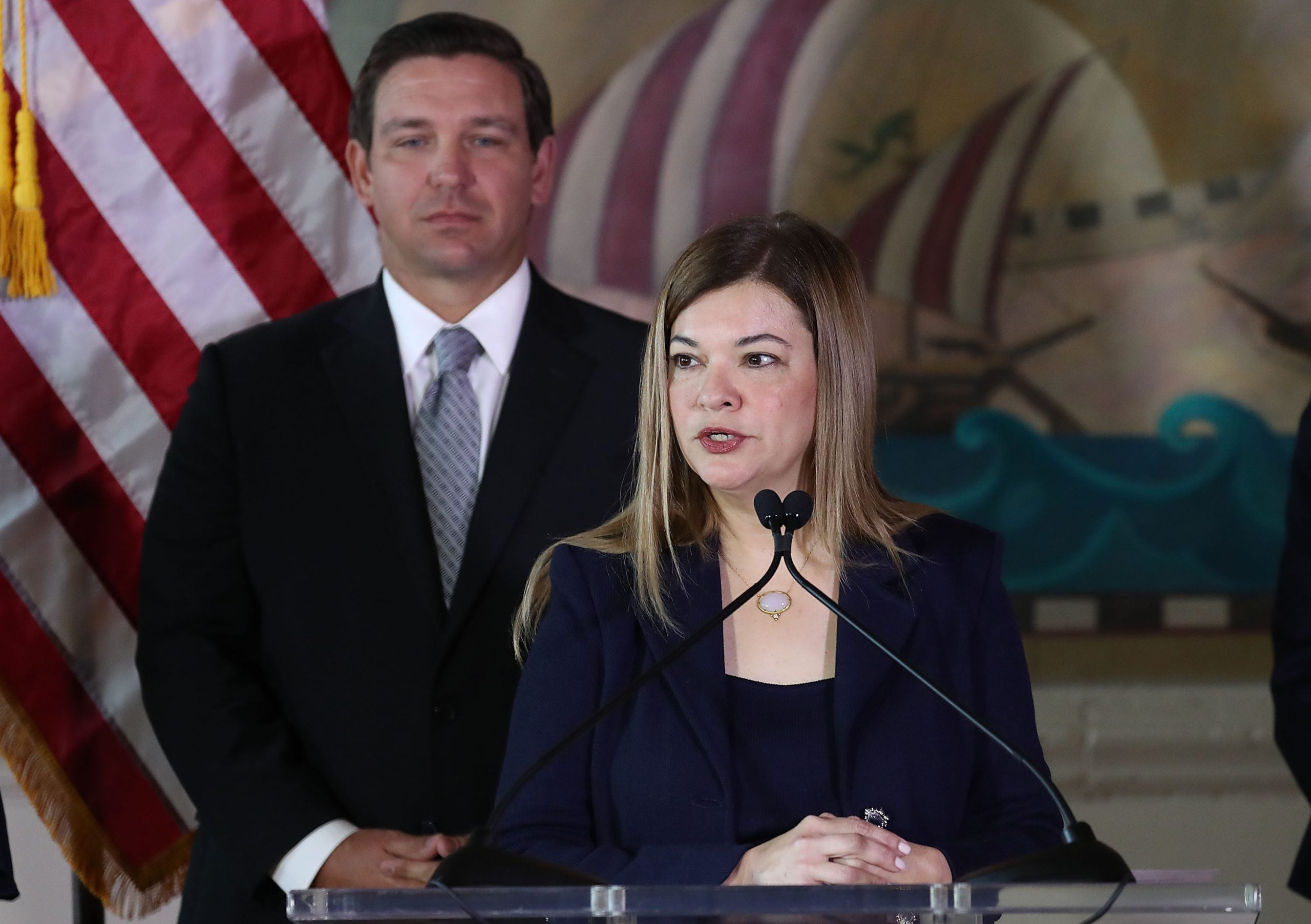
A federal judge on Donald Trump’s shortlist of replacements for Ruth Bader Ginsburg’s Supreme Court seat is stirring up controversy ahead of his decision. This month, Barbara Lagoa, who now serves on the U.S. Court of Appeals for the 11th Circuit, ruled in favor of upholding a modern-day poll tax for formerly incarcerated voters attempting to restore their civic right.
Lagoa, a Cuban American judge known for her work on the Elian Gonzalez case, is taking heat on two fronts. Not only has the Miami native green-lit the suppression of roughly 85,000 votes in the Sunshine State, but critics also say she should have recused herself from the case altogether due to her past work as a judge.
According to the Washington Post, last year when Lagoa was confirmed to the federal bench, she promised to recuse herself from any case where her impartiality could be called into question. However, when it came time to decide if formerly incarcerated individuals would be allowed to vote despite having outstanding legal fees and fines, Lagoa chose to remain involved. This, after she was involved in litigation regarding the same voting rights issue last year while serving on the Florida Supreme Court.
Lagoa and another judge wrote a 25-page decision giving their reasoning for why they should remain on the case. “These two cases involve different kinds of proceedings (advisory opinion vs. Article III case-and-controversy), in different courts (state supreme court vs. federal court), with different issues (interpreting state constitution vs. federal constitutional questions), and different players (“interested persons” vs. parties),” their decision said in part.

Despite Lagoa’s own feelings on the matter, Democrats are likely to raise concerns over her stance on voting rights if Trump announces her as his pick on Saturday. Florida is a swing state, and many view the court’s decision to place a poll-tax on the formerly incarcerated as a way to suppress thousands of crucial votes in a heated election. In addition, Lagoa’s husband, Paul C. Huck Jr., works as an attorney for the firm that represents the Trump campaign, which could be seen as a conflict in the future.
In 2018, Florida voters passed a measure that allowed for the restoration of voting rights for formerly incarcerated individuals who had not been convicted of murder or sexual offenses. Earlier this year, Florida Gov. Ron DeSantis, along with members of the state clemency board, voted unanimously to allow the formerly incarcerated to apply for the restoration of their civil rights, which includes voting, even if they haven’t fulfilled financial obligations such as restitution or other court fines. Earlier this month, Lagoa, and five others ruled that registered voters who have been convicted of felonies must first pay court debts before having their civic right reinstated.
A Bloomberg-backed fundraiser helping to pay off the debts of more than 30,000 formerly incarcerated voters is now being investigated by the Attorney General of the state of Florida, under the direction of Governor Ron DeSantis.